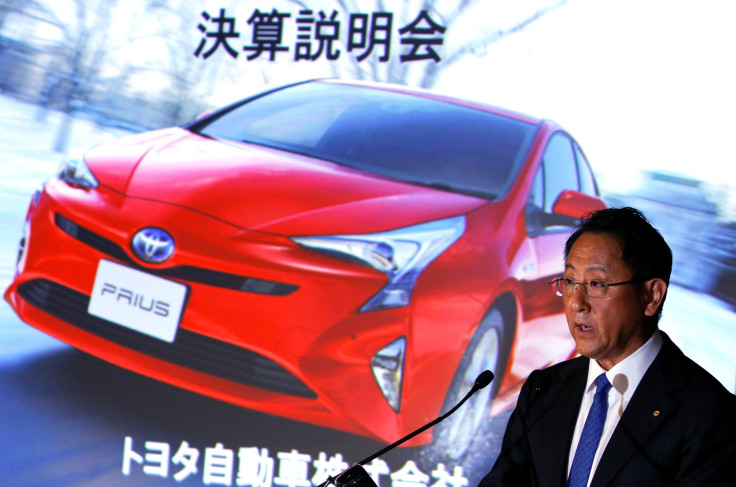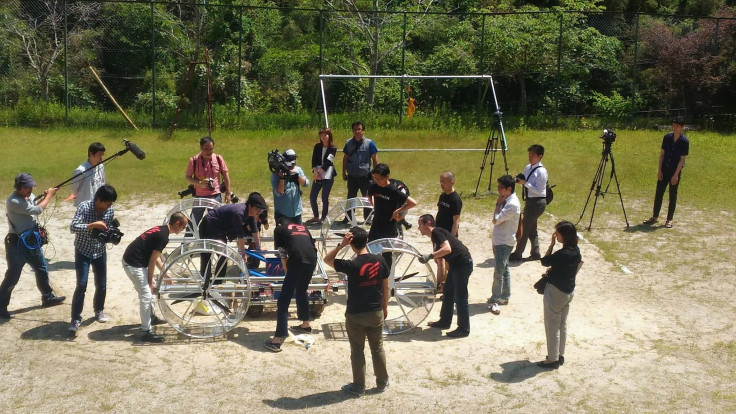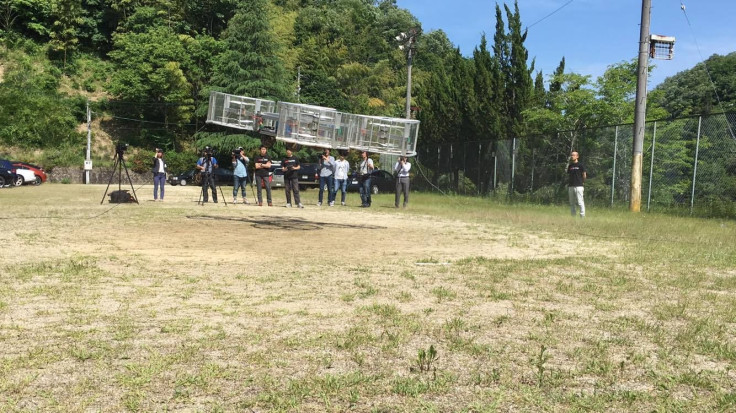Toyota Ends Tesla Partnership, Working On ‘Flying Car’ With Cartivator

UPDATE: 5:30 a.m. EDT — Toyota confirmed it had liquidated its entire stake in Tesla, Bloomberg reported Saturday, citing a spokeswoman for the car maker who spoke to the news outlet by phone.
According to data compiled by Bloomberg, the Japanese company held 1.43 percent stake in Tesla in July 2016, which was down from the 3.15 percent Toyota had originally bought in 2010.
Original story:
Japanese car manufacturer Toyota has ended its partnership with Elon Musk’s electric car maker Tesla, and will work toward developing its own electric vehicles, according to a report Saturday by Asahi Shimbun. In December, Toyota sold all the shares it held in Tesla as it attempted to “review destinations for investment,” the Japanese newspaper reported.
The two automakers had begun their cooperation in 2010, when Toyota purchased 3.15 percent shares of the California company for $50 million, and in 2012, the collaboration also led to the production of an electric-powered sports utility vehicle that sold 2,500 units, according to an Agence France-Presse report. The news agency was also the one who cited Asahi Shimbun on Saturday, even though it could not immediately confirm the Japanese outlet’s story.
Read: Toyota Wants To Rival Tesla In Electric Vehicles
Toyota, which has till recently focused on developing the fuel-cell technology for green vehicles, has reportedly set up a team — drawing members from its various group companies — to work on electric cars instead. Its fuel-cell powered car Mirai (meaning “future” in Japanese), powered by a reaction between hydrogen and oxygen, emits only water from its exhaust pipe. However, hydrogen refuelling stations haven’t sprung up around the world, making it difficult to make the technology mainstream.
While it moves focus away from the fuel-cell technology, Toyota is venturing into another futuristic vehicle — a flying car. A Japanese startup, Cartivator Resource Management, which the car maker has invested 42.5 million yen ($385,000) in, tested an early version of its flying car, named Sky Drive, Saturday, the Associated Press (AP) reported.

Cartivator is based in the city of Toyota in Aichi Prefecture, Japan, and according to its website: “We aim to build a prototype, establish theory of flight control, as well as form alliances with major corporations to make mass production of the flying car a reality.”
The test flight Saturday was of a “full scale prototype,” according to the company, which also said in a statement that the “previously damaged” propellers, since repaired, showed “good performance.” However, AP, which was among the five media outlets present at the event, filed a report that sounded a little less upbeat.
“The gadgetry, about the size of a car and loaded with batteries and sensors, blew up a lot of sand and made a lot of noise. It managed to get up as high as eye level for several seconds before tilting and falling to the ground. Basketballs attached to its bottom served as cushions. After several attempts, the endeavor had to be canceled after one of the covers got detached from the frame and broke, damaging the propellers,” the AP report said.

No humans or drones were harmed in Saturday’s test flight, since Sky Drive in its current avatar is considered too risky for anyone or anything to ride in it.
Read: Toyota-Backed Flying Car Could Light Olympic Torch In 2020 Tokyo Games
Cartivator wants to build a vehicle that offers a smooth transition between driving and flying, along the lines of the “Back to the Future” films, the project’s leader Tsubasa Nakamura told the AP.
"I always loved planes and cars. And my longtime dream was to have a personal vehicle that can fly and go many places," Nakamura said.
Using the investment from Toyota, the Cultivator team is working on improving the design and wants to have its first manned flight in 2019. It hopes to have a driver in Sky Drive light the torch in the 2020 Tokyo Olympic Games.
© Copyright IBTimes 2024. All rights reserved.




















